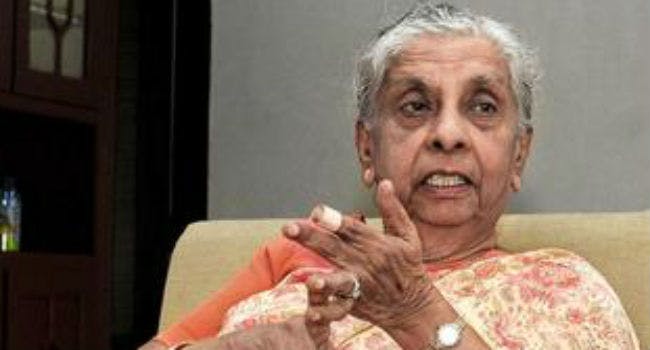The Indian education system provides to its students a facility of choosing subjects according to three streams, which can be studied in senior secondary classes. These are Humanities, Commerce and Science.
Commerce is a sought after stream which provides a variety of opportunities. Some of the subjects included in this stream are Maths (optional), Business Studies, Accounts and Economics with English as a compulsory subject. Here are some options and career paths which can be chosen by students who graduate in Commerce:
Charted Accountancy
The job profile of a Chartered Accountant (CA) includes offering financial advice, audit accounts, and providing trustworthy information about financial records. This might involve financial reporting, taxation, forensic accounting, corporate finance, consultancy, and business recovery and other such services. It is a highly sought after profession and fetches exceptional salaries. The academic difficulty is therefore of a high level. A disciplined attitude for hard work, logical approach, and numerical ability is needed for this profession. After passing the CPT, 10th class pass students can register themselves with the Board of Studies for the Foundation Course, complete 9 months and appear for the Foundation examination after completing 12th. The second level includes the Intermediate Course for which one registers. After completing 12 months of theoretical education of the Intermediate course, one needs to pass at least one Group I exam, begin practical training after completing 3 weeks of ICITSS and appear for the final examination for enrolment in the ICAI. Independent practice, Chartered Accountancy firms, business houses, and consultancy firms are some of the avenues offering opportunities to CAs.
C.S. Foundation
Career as a Company Secretary has been viewed as not only a prestigious and financially rewarding career, but also carries with it a high level of job satisfaction. A Company Secretary is an in-house legal expert, an expert in corporate laws, security laws and capital market, chief advisor to the board of directors, responsible for all regulatory compliances of company, and a corporate planner and strategic manager. After completion class 12th, a student who wishes to join the CS Course has to go through 3 stages, namely, Foundation Programme, Executive Programme and Professional Programme. The student will have to undergo Practical Training for 15 months for which he/she may opt to start after passing the Executive Programme itself. However, a student who joins the Course after graduation (example – B.Com), has to pass 2 stages, i.e. Executive and Professional Programme, in addition to 15 months of practical training. Additionally, the CS course is recognised by the various Universities for admission to Ph.D. Course and the ICSI conducts Post Membership Qualification (PMQ) Course in Corporate Governance.
Management in Computer Systems
If you are proficient in computers and are intrigued by computer software and networks, this is the course for you. These programmes offer education in the design, implementation and management of connected systems of computers or networks, peripherals and integrated software to increase productivity. Exploration of concepts in telecommunications planning, organizational behaviour, network security and database design is also undertaken. A basic GED certification or a high school diploma is the minimum requirement for entering/ registering for these courses. Students may pursue a B.C.A (Bachelor of Computer Applications) and then follow it up with M.C.M/M.C.A degree for this career path.
Business Administration
Business administration is a wide field that incorporates many types of management positions. Every business, institution, and organisations requires skill administrators. This is the need of the hour and this is where your degree in business administration will come in handy. For this purpose, you may pursue B.B.A (Bachelors in Business Administration) and follow it up with an M.B.A (Masters in Business Administration) from a good B- school. Alternatively, you can get a graduate degree in a commerce course such as Bachelors in Commerce or Bachelors in Economics and then get an M.B.A. degree. A host of opportunities are in store for M.B.A graduates in today’s competitive corporate culture. The streams include but are not limited to Finance, Marketing, Human Resource, Consultancy, and IT.
Research/ Teaching
If your heart lies in academics, you may want to choose this option. At graduation level, you can pursue B.Com/B.A Mathematics/B.A. Economics or any other Bachelor degree in a subject of Commerce. This can be followed up by a post- graduation degree such as M.Com or M.A in the same subjects. Post this, you can choose to be a researcher by working on an M.Phil and/or Ph.D. In case you wish to teach, you may pursue B.Ed/M.Ed/UGC-NET.
Defence Services
As a commerce graduate, you can choose a life of valour and join the Indian Army/Air Force/Navy. You can appear for the UPSC CDS Examination and appear for the SSB and medical examination in order to qualify for the post of an officer. As a commerce student, you can only join through the non- technical entries. You may join IMA (Permanent Commission, CDSE with Maths option) or OTA (Short Service Commission, CDSE without Maths). The various ways in which you can join the Indian Army has been mentioned in detail in our previous article How to Join the Indian Army as an Officer. You can make excellent use of your knowledge and skills in safeguarding and serving your own country.
Options after B.Com
After studying commerce subjects in Class 12th, an obvious option is to pursue a Bachelor’s degree in Commerce, or B.Com. Post this course, you have a lot of options you can pursue. You may:
- You can decide to study B.A+L.L.B integrated/L.L.B course and choose Law as your profession. This can be followed up by an L.L.M (Masters in Law)
- become a Banking/Insurance Probationary/Development Officer by clearing the requisite standardized exams/certifications.
- Get an M.B.A degree and seek a job as a business administrator.
- Appear for MPSC/UPSC and establish yourself in the Indian Civil Services.

























